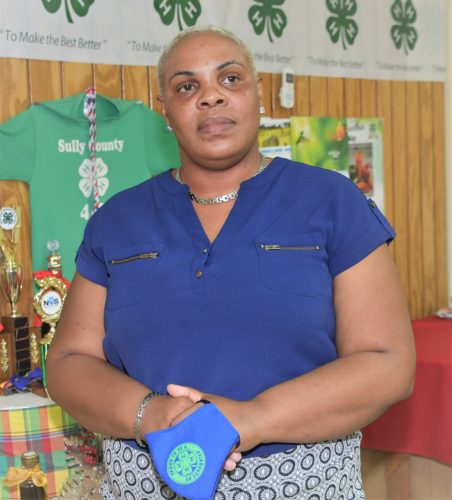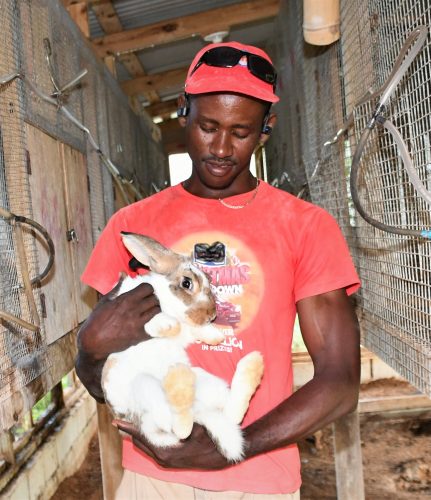Trelawny 4-H Clubs Deliver Virtual Training On Rabbit Rearing
By: , February 25, 2021The Full Story
As part of its thrust to maintain relevance amidst the COVID-19 pandemic, the Jamaica 4-H Clubs has revised the way it presents and delivers a number of its training programmes.
This has been done while maintaining its mandate as the country’s premier youth leadership and vocational training organisation for young, aspiring farmers and agricultural entrepreneurs.
Among its latest endeavours, the Trelawny branch of the Jamaica 4-H Clubs on Monday (February 22), concluded a Rabbit Care and Management training course, which was conducted on the Zoom platform at no cost to participants.
Parish Manager and Coordinator for the project, Natanish Hines, told JIS News that 109 aspiring farmers and entrepreneurs from across the island participated in the Mastery Level training, which aims to entice more livestock farmers to venture into rabbit rearing at the commercial level, and ultimately steer Jamaica towards greater consumption of the alternative animal protein.

The virtual classes and assessment that took place from February 10 to 22 attracted participants from all 14 parishes, and according to Ms. Hines, the level of participation exceeded expectation in numbers, and that the gender balance was encouraging with a ratio of 60:40 male/female, ranging from 15 years old to senior adults.
“Previously, we used to look at [training] our 4-H Leaders which were our clubbites in the schools. [However], since the pandemic, we have broadened the scope and now we are looking at anybody and everybody who is available and is at home trying to find an alternative or something to pivot on,” Ms. Hines said.
She pointed out that the aim of the initiative is to position rabbit meat as an alternative animal protein that is a healthy and commercially viable product. The objective is to initially produce for the local market.

“We need to get more Jamaicans consuming this protein, which is said to be superior to chicken meat as it is leaner and comes to market much faster than others. It also fetches a better price on the market,” she added.
Another objective of the programme, she said, is to promote the rabbit industry as a lucrative undertaking from which money can be made. Depending on the market and the breed, a pair of rabbits, Ms. Hines noted, may cost from $5,000-$15,000 per pair.
Pre-COVID-19 demand for rabbit meat among the Spanish-operated hotels and restaurants along the north coast was on the increase, Ms. Hines pointed out, adding that an improvement in the standard of presentation and packaging would bring added value to the product for both farmers and their markets.
Consequently, efforts are being made to encourage rabbit farmers to form cooperatives that will invest in meat processing and packaging plants to meet international market standards and better cater to the local tourism industry.


